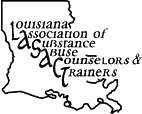BECOME A CERTIFIED PEER RECOVERY SUPPORT SPECIALIST

Learn Powerful Recovery Keys to better serve people facing mental health and addiction challenges.
Premier Online Training from NET Institute Center for Addiction and Recovery Education
To meet the growing demand for Peer Supporters and Recovery Specialists across the nation, we have created the Comprehensive Peer Services Training Online program. Now, for the first time, you will have access to affordable, practical, self- paced courses covering all the major content areas you need to build upon your own personal recovery experience.
We recognize that Peer Recovery Services are fast becoming a mainstay in Behavioral Health Care as funding sources increase reimbursement for a variety of support services in a range of settings.
All courses meet and exceed IC&RC educational requirements for the Certified Peer Recovery Support Specialist credential offered through the Louisiana Association of Substance Abuse Counselors and Trainers (LASACT)..
PEER RECOVERY SUPPORT TRAINING

COMPREHENSIVE PEER SERVICE TRAINING
75 Hours
Comprehensive Peer Service Training (CPST) recognizes that Peer Recovery Services are fast becoming a mainstay in Behavioral Health Care. This program includes two components that address both mental health and/or substance use disorders. Peer Specialist Fundamentals and Peer Recovery Essentials give you an entire learning experience based on the IC&RC Job Analysis for Peer Recovery.
READ MORE
YOUR PEER RECOVERY SUPPORT PROGRAM
Comprehensive Peer Recovery Services75 hours | Peer Specialist Fundamentals40 hours | Peer Recovery Essentials35 hours |
||
|---|---|---|---|---|
PEER SPECIALIST FUNDAMENTALS |
||||
| Peer Specialist Overview 4 Hours | You will be introduced to the attributes, roles, duties and guidelines for a Peer Specialist. Also take a personal look at your own recovery, motivations for helping others, and career development. |  |  | |
| Recovery & Resiliency 2 Hours | Define the strengths perspective as well as the difference between the medical model of mental health treatment versus the recovery model. |  |  | |
| Legal Issues and HIPAA 2 Hours | You will be introduced to courtroom etiquette, help peers identify and understand communication barriers, and the reasoning behind documenting practices. |  |  | |
| Stigma Issues 2 Hours | You will be introduced to how transformational language helps a peer specialist in the transformation in services for people with mental health problems. |  |  | |
| Interpersonal Communication 2 Hours | You will learn the importance of verbal and non-verbal communication, explore various communication styles and examine their own communication skills. |  |  | |
| Mental Health Disorders 5 Hours | Student will be introduced to the history of mental illness with particular attention to how and why the recovery model has emerged. You will understand the basic components of the DSM-5. |  |  | |
| Substance Abuse Disorders 4 Hours | You will be introduced to tools that will help you develop appropriate and effective ways of approaching others with a substance use disorder and/or co-occurring disorder. |  |  | |
| Cutural Competence 2 Hours | Learn how cultural influences and spirituality affect a peer’s treatment and recovery process, also explore your own values as related to various cultures. |  |  | |
| Ethics: Peer Specialist 6 Hours | Learn about the critical nature of how ethics and boundaries play an integral role in the daily job of a peer specialist. |  |  | |
| Adult Education 2 Hours | You will learn the types and purposes of groups and how to properly facilitate them as a peer specialist, as well as the differences behind how adults learn. |  |  | |
| Community Reintegration 6 Hours | You will learn the basics necessary to assist with peer reintegration into the community and understand how you can advocate for peers in a variety of ways. |  |  | |
| Wellness 6 Hours | You will experience positive and reinforcing activities through self-assessments and easy to use tools to reduce stress and improve quality of life. |  |  | |
PEER SPECIALIST ESSENTIALS |
||||
| Peer Recovery Keys 5 Hours | Outline the role of peer support in recovery and review relationship building and communication skills, boundaries and ethical issues. |  |  |
|
| Recovery Support Services 5 Hours | Learn definitions, principals and descriptions of best practices as well as the primary differences between the acute care and recovery support models. |  |  |
|
| Ethics: Peer Recovery Services 8 Hours | Learn concepts and models of ethical decision making and the importance of these concepts. |  |  |
|
| Alcohol and Its Effects 2 Hours | Learn alcohol's effects, the neurochemistry of tolerance and withdrawal, and the social and legal consequences of abuse and alcohol addiction. |  |  |
|
| Addiction Care: Early Recovery 10 Hours | Gain an understanding of the three stages of recovery and recognize the challenges of early recovery including navigating treatment services, preventing relapse and learning self-care. |  |  |
|
| Street Drugs Overview 5Hours | Become familiar with common street drugs including prescription medications by their appearance, how they are categorized, signs of use, and the effects and dangers of each. |  |  |
|
